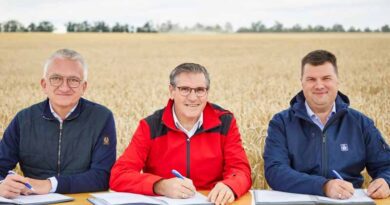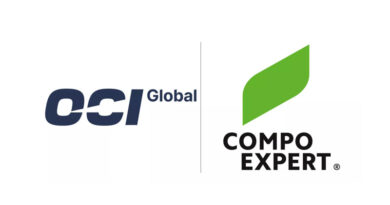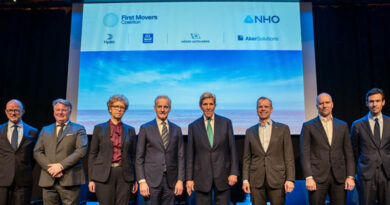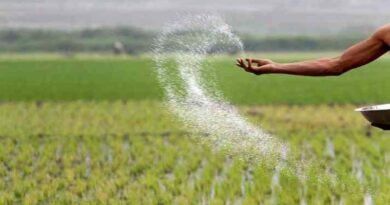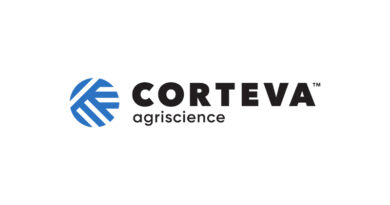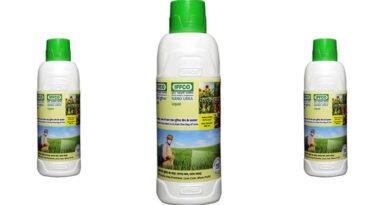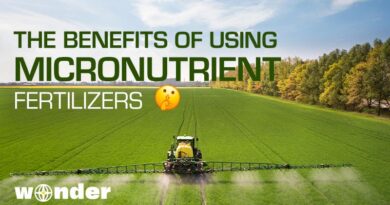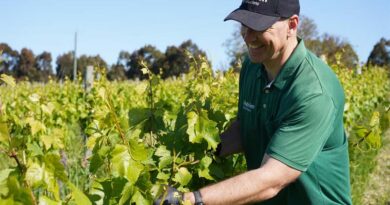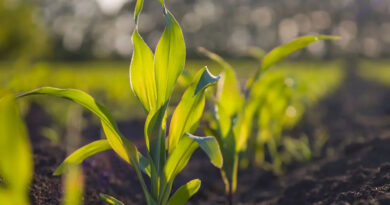Unique collaboration to produce bread with lower carbon footprint in Norway
24 January 2024, Oslo: Reitan Retail, Norgesmøllene, Felleskjøpet Agri and Yara have entered a collaboration to produce a bread, made from Norwegian oats, with lower carbon footprint.
- The four companies have signed a letter of intent aimed at reducing emissions from Norwegian food production, from fertilizer production to finished food products.
- To achieve their goals, the companies will use mineral fertilizers produced using electrolysis and renewable energy, adopt better agronomic practices, and leverage precision farming tools.
- Oats will be the first available product, with between 25-30 percent lower carbon footprint than regular oats produced with traditional mineral fertilizers.
- The intention is to produce an oat-based bread, to be made available in REMA 1000’s stores in 2025.
The four companies represent the majority of the food value chain for grain. This process spans from the production of mineral fertilizers and cultivation in the field, to the production of flour and grain products, culminating in the delivery of finished goods sold to the consumer. Oats will be the first grains to have a carbon footprint reduction of 25 to 30 percent compared to regular oats.
With an optimistic outlook on the coming season, the companies aim for a bread that is healthy, tasty and affordable, and made from oats.
“Finally, we can bring together the majority of the food value chain to reduce the carbon footprint of food, from farm to fork” says Svein Tore Holsether, President and CEO of Yara. “The food system accounts for a third of global emissions, and it is not possible to reach the goals of the Paris Agreement without decarbonizing food production. With a growing population, we need to produce more food in a sustainable way. This collaboration marks an important step in the right direction.”
Ole Robert Reitan, CEO of Reitan Retail, says REMA 1000, with close to 700 discount grocery stores in Norway, is committed to facilitating informed and responsible choices for customers. However, he underlines that the biggest results from carbon footprint reduction, can only be achieved by collaborating across the value chain.
“Our ambition is to make bread with a lower carbon footprint, that is also healthy, tasty and affordable. It is impossible to succeed with such a project on your own. We need to collaborate throughout the value chain by sharing data and knowledge, and implementing actions that are in the best interests of all. Now we will all collaborate across the value chain and use Norwegian high-quality ingredients from innovative farmers. That is very exciting,” says Ole Robert Reitan.
Felleskjøpet, an agricultural cooperative owned by 37,500 Norwegian farmers, distributes mineral fertilizer to farmers all over the country and serves as the market regulator for grain. They buy and sell grain from the farmers and are also an important supplier of technology and equipment to the agricultural sector.
“Norwegians expect their food to be pure and of high quality, and the food value chain that delivers them keep the same standard. At the same time, Norwegian agriculture has committed to major emission cuts as part of the Norwegian agricultural climate agreement. If the industry is to succeed with major greenhouse gas reductions, while at the same time strengthening self-sufficiency, cooperation between the different players is necessary. Our role is to represent Norwegian farmers and be open to business models and collaboration that ensures the involvement of all parties,” says Svenn Ivar Fure, CEO of Felleskjøpet.
In this collaborative effort of uniting the bread food chain, the ambition is to reduce the costs from decarbonization for both farmers and consumers. The milling group Norgesmøllene, recognized for its brand “Møllerens”, produces flour, grain, bread and bakery products in Norway, and is committed to giving consumers the opportunity to make lower carbon choices in the supermarket.
“We are excited to work together to get this bread out to the store shelves, and soon everyone who bakes at home will have the opportunity to choose grain products with a reduced carbon footprint, says Jan-Eirik Eikeland,“ CEO of Norgesmøllene.
In addition to Norway’s first food project involving fertilizer produced with electrolysis of water and renewable energy, the companies want to reduce their climate footprint on all levels. This could include optimizing agricultural methods, precision tools for more accurate farming, use of agricultural inputs, a transition to more low-emission transportation, as well as methods for measuring and recording carbon footprint.
“This project is a good example of collaboration to reach the climate goals and can form a template for how other companies in different parts of the value chain can also collaborate,” says Petter Haas Brubakk, CEO of Food Drink Norway, The confederation of Norwegian Enterprise.
Strong demand for more sustainable food in Norway
In a European survey conducted by IPSOS on behalf of Yara, 65% of Norwegians said that food producers should work to reduce emissions, with 73% saying that farmers should be given incentives to implement more sustainable farming practices. Over half of Norwegians also wanted clear labelling of the carbon footprint on the food they buy.
By collaborating across the value chain, the companies will facilitate food production with a reduced carbon footprint and at the same time promote Norwegian grain production.
Key facts
- Yara’s fertilizer produced with electrolysis of water and renewable energy can reduce the carbon footprint of oat production by 25 to 30 percent, based on Yara’s calculations.
- Unlike traditional production methods that use natural gas, Yara’s mineral fertilizers will replace fossil gas with electrolysis of water. The result is fertilizer with a 70-90 per cent reduction in CO2 footprint, compared to mineral fertilizers produced with fossil natural gas.
- On average, 1,155,300 tonnes of grain are produced in Norway each year, of which 300,100 tonnes is wheat and the other 244,800 tonnes are oats. The Norwegian share in wheat flour has averaged 65 per cent over the past 5 years. The trend is increasing but varies widely from year to year due to weather conditions that affect whether the grain meets food quality qualification requirements.
- Precision farming helps reduce the climate footprint of grain production. Applying fertilizer in alignment with the specific needs of crops, not only safeguards crop quality, but also contributes to better profitability for the farmer.
- Tools to measure the carbon footprint will help raise awareness of products’ carbon footprint, the climate impact of food production and give farmers and food producers opportunities to reduce their carbon footprint.
Also Read: DLF to close the R&D site in Landskrona, Sweden
(For Latest Agriculture News & Updates, follow Krishak Jagat on Google News)



